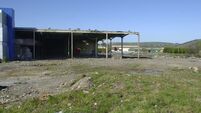Low-income earners forced into financially risky behaviours during cost of living crisis

The study shows that the most deprived households in Ireland — and particularly those with children — would 'especially benefit from assistance beyond recent temporary measures'.
Households on low incomes were only able to cope with the cost of living crisis by making “high-risk” changes to their finances, such as taking on additional loans, according to new research.
A report by the Economic and Social Research Institute (ESRI) says low-income households typically resorted to financially risky behaviours in order to counteract the effects of the crisis — including taking on additional loans, going into arrears on the loans or commitments they already had, and using their savings to keep their heads above water.
While issues such as high rents had proven problematic for consumers for several years, a full-blown cost of living crisis ensued in the aftermath of Russia’s invasion of Ukraine in February 2022 — an action which precipitated massive hikes in the cost of electricity and gas on the back of uncertainty in wholesale energy markets internationally.
The current Government’s predecessor introduced various cost of living supports — including one-off energy payments and double child benefits — as part of each annual budget between 2022 and 2024.
However, the ESRI study shows many households operating on lower incomes during the crisis did not access all of the optional State supports, such as the rental tax credit or Housing Assistance Payment (HAP), available to them at the time.
The report’s co-author, Diarmaid Ó Ceallaigh, said the financial changes made by families were “likely to have a lasting negative impact”.
In recent weeks, the Government has commented that last October’s budget would be the last to include a cost of living package — with the State instead to concentrate on actions aimed at longer-term stability.
Despite this, Mr Ó Ceallaigh said the ESRI study shows that the most deprived households in Ireland — and particularly those with children — would “especially benefit from assistance beyond recent temporary measures”.
The study by the ESRI’s behavioural research unit found that most households which had experienced cashflow problems during the crisis had reduced spending on essentials such as clothes, food and energy, but had been “forced to do more” regardless.
More than 1,600 low-income households were surveyed as part of the study.
The research found there was little evidence that households who took high-risk actions with their finances did so due to their being predisposed to do so.
Instead, the extent to which households put themselves in financial jeopardy was broadly predicted by their life circumstances — such as pre-existing financial difficulties.
Very low engagement was found among the study’s respondents in terms of accessing elective State supports, with only half having a GP visit card and less than half of renters accessing either the rent tax credit, rent supplement, or HAP.
Many respondents said that they were simply unaware of the benefits in question, or did not know what they involved.
Benefits which were not means-tested, such as the monthly universal child benefit payment, were found to be less burdensome to access. Families which reported the highest levels of difficulty in accessing supports tended to be those on the lowest incomes considered, and those who regularly struggled to afford life essentials.
Study co-author Lucie Martin said the “complexity” of Ireland’s welfare system could have “blunted its effectiveness” during the crisis, making it harder for those most in need to access the supports available to them.
She suggested that a simplification of the system — by implementing a single-point of application for example — could help to ease the “frustration” involved.










